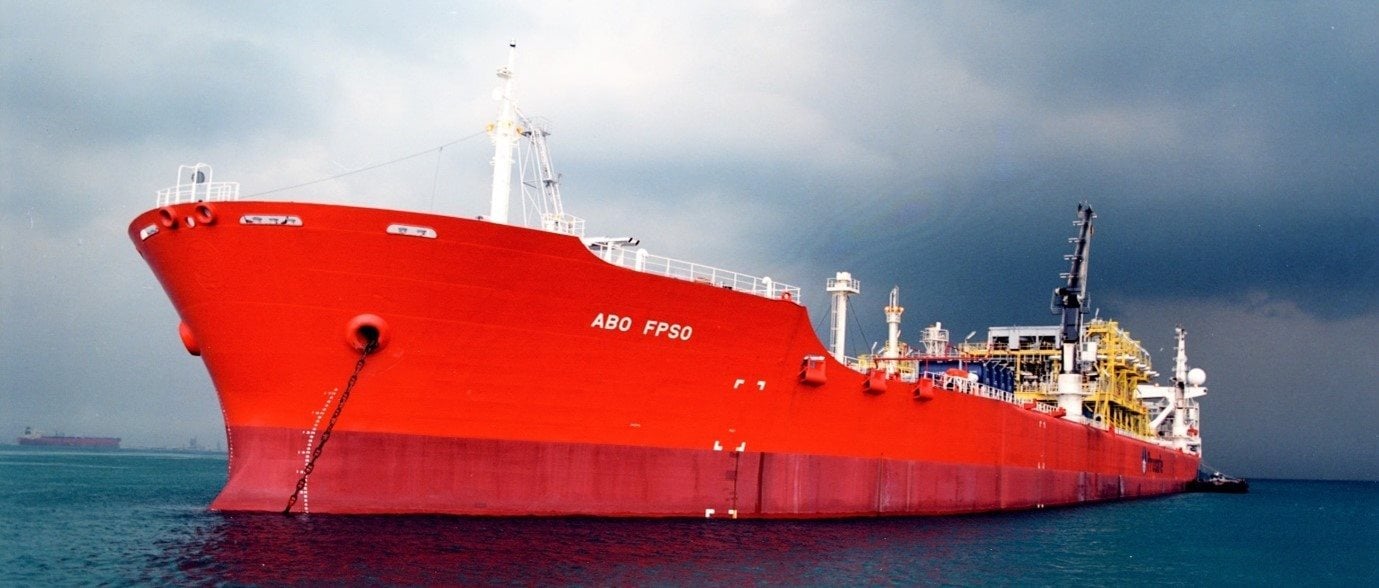7000 LTI free days on ABO FPSO
The team on ABO FPSO has achieved 7000 Lost-Time Injuries (LTIs) free days, which means that they have over 19 years of operation without a single LTI.
Ensuring the safety and wellbeing of its employees is BW Offshore’s greatest responsibility and is reflected in its zero-harm principle. As we operate large offshore floating process facilities, often in remote areas far from shore, identifying and managing risks becomes critical to ensure safe and secure operations.
On 13 April, BW Offshore’s team on ABO FPSO passed an extremely impressive milestone, with 7000 LTI free days. In addition to the strong LTI performance, the unit can also celebrate two years without any High Potential Incidents (HPI) and zero recordable personal injuries (such as Restricted Workday Case or Medical Treatment Case).
Achieving this feat on the backdrop of an aging asset undergoing life-extension project work, highlighting the demanding work environment, makes this achievement all the more remarkable.
The team on ABO FPSO has benefitted from leaders who have bonded well, performed well cohesively, and a stable unit management team with good understanding of team dynamics. In 2020, we welcomed the promotion of the first national (local) Offshore Installation Manager (OIM) on ABO FPSO. For us, having a strong local connection provides knowledge, widens available competence base and supports the development of a joint company culture.

Strong focus on ‘control of work’ processes
The backbone to managing safe operations on the unit over the years has been strong focus on several important control of work processes, such as an active participation in the Safety Observation Card programme. BW Offshore utilises Observation Cards to allow immediate feedback from BW Offshore personnel and external parties to report unsafe work conditions, provide feedback for improvement, highlight positive behaviours and good practices. As of March 2022, ABO FPSO stands with the highest number of Stop Work Cards issued in BW Offshore’s fleet. This is a testament towards the spirit of care and openness shown by the leadership team on the unit. Leaders have delivered on actions raised from Safety Observation Card reporting, thereby enhancing crew confidence.
Operating in a high-risk environment, BW Offshore has several ‘control of work’ processes in place to ensure safe operations. One example is Permit to Work audits, where control measures identified in job safety analyses or risk assessments are verified on-site. In the Permit to Work audits, we conduct checks to ensure all documentation is in place, and that the work party understand the potential hazards and their responsibilities as stated in the Permit to Work documentation. On ABO FPSO, the Monthly Permit to Work audits are taken seriously by the team, and the unit management allows and encourages free flow of upward communication from workforce.
Regular safety rounds and frequent informal discussions with the workforce related to hazards has increased trust in the leadership team, and with the lack of fear of repercussions the reporting of unsafe acts and conditions has increased. On ABO FPSO, it’s really all eyes on deck, and everyone is looking over each other’s shoulders to ensure safety is always in focus.

The ABO FPSO
The ABO FPSO has been operating on the Abo field offshore Nigeria with Eni’s Agip since the beginning of production in 2003. The unit is spread moored, and has a storage capacity of 940,000 barrels of oil and oil processing capacity of up to 44,000 bopd, a water injection capacity of 33,000 bwpd, and a gas handling capacity of 48,4 mmscfd. At all times, the number of people on board the unit is between 90 and 110.